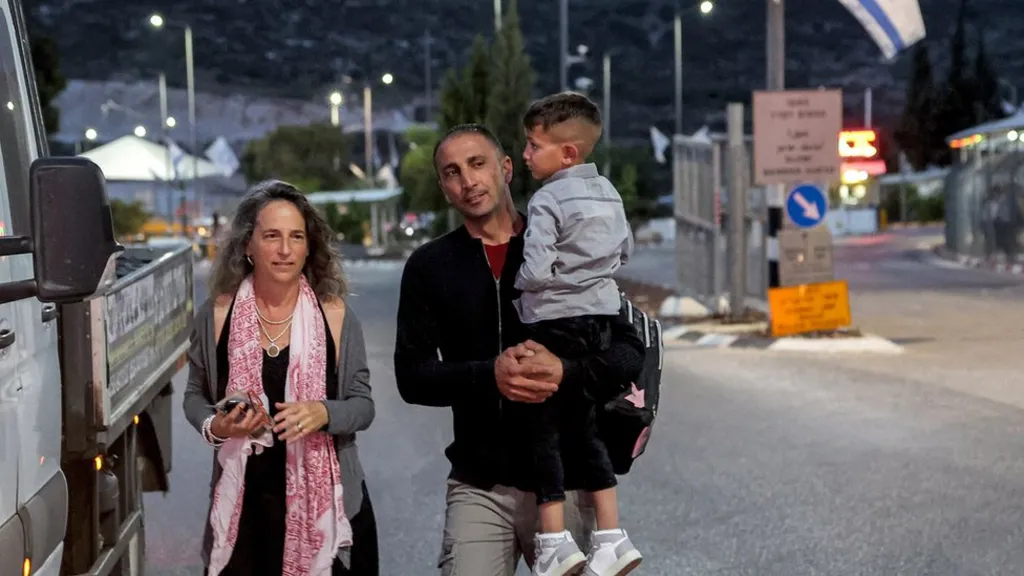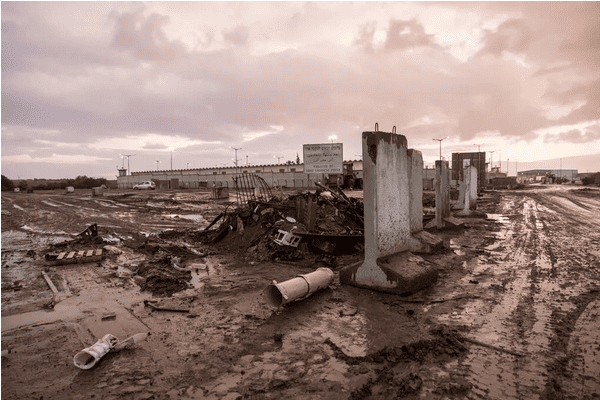An Israeli Charity for Palestinians Grapples With Oct. 7 Attacks
January 31, 2024 – Gal Koplewitz,
Before the war, Road to Recovery helped bring sick Gazans to Israeli hospitals. Several of its volunteers died in the Hamas attacks, and donations to the group have slowed.

Nearly every week for a decade, Iri Kassel picked up sick Palestinian children at Israel’s Erez border crossing with Gaza and drove them with their guardians to Israeli hospitals for treatment.
But on Oct. 7, the crossing was raided by Palestinian militants who blasted the passport control booths and magnetic scanners as they stormed into southern Israel.
The deadly attacks plunged Israel into all-out war in Gaza and disrupted the work of Road to Recovery, the Israeli nonprofit organization that Mr. Kassel volunteers for, which has ferried more than 1,500 Palestinian patients a year to Israeli hospitals.
Several of the group’s volunteers died in the Hamas-led attack, including Vivian Silver, a prominent peace activist who was killed in her home at Kibbutz Be’eri in southern Israel. Others were taken hostage, like Oded and Yocheved Lifshitz, a couple in their eighties from Nir Oz, a kibbutz near the Gaza border. Dozens more lost loved ones or were evacuated from their homes near Gaza.
The organization’s staff and volunteer drivers were devastated. “It was a blow to the stomach,” Mr. Kassel said. Even for those who survived the attacks, he said, there was “an almost physical pain.”
Road to Recovery was founded in 2010 by Yuval Roth, a peace activist whose brother had been kidnapped and killed nearly 20 years earlier by Hamas militants. The group helps Palestinians from Gaza and the West Bank access medical treatment in Israel, where health services are among the most advanced in the region.
In order to be treated in Israel, Palestinian families have to navigate several obstacles. The Palestinian Authority’s Ministry of Health must agree to absorb the cost of the treatment. Then, families have had to obtain permission from Hamas to exit Gaza, and from Israel to cross the border.
Once they are inside Israel, the cost of traveling to a hospital can be prohibitive for many Palestinian families. That is where Road to Recovery comes in.
Yael Noy, the organization’s chief executive, said its work is as much about humanitarian aid as it is about fostering personal connections between Israelis and Palestinians.
“Palestinians see Israelis as soldiers at checkpoints, and many Israelis don’t see Palestinians at all,” she said in an interview. “These rides are an opportunity for a clean, direct human encounter.”

Mr. Kassel, 77, a retired educator, said he rarely discussed politics directly with Palestinians he picked up, although the conflict surfaced in numerous ways. Once, he drove a family to a hospital during a flare-up in hostilities between Israel and Hamas. “I found myself explaining what they should do in case sirens go off, signaling Hamas rocket fire,” he said. Later, after he had driven them back to Gaza, he heard from the family that their house had been damaged by an Israeli attack.
Some of the drives pass in silence. Conversations are often stilted because of the language barrier. Still, volunteers say they have formed relationships with Palestinian families.
The morning after the Oct. 7 attacks, as gunfights still raged in towns near Gaza, volunteers showed up at the crossing with the West Bank to pick up sick Palestinian children. The group’s work has continued in the West Bank, even as Israel has all but banned crossings from Gaza.
Some volunteer drivers say that, since the attacks, friends have called them naïve or radical for continuing to help Palestinians. The group says donations have slowed, as even Israelis who support its work prioritize giving to other initiatives.
Mr. Kassel said that while he admired friends who continued to volunteer, it was now too hard for him to do so. “I know that people in Gaza are enduring huge suffering: their houses and economy are ruined, they’ve become refugees again, medical care is almost nonexistent,” he said. “But emotionally,” he added, “I feel angry and hurt — even betrayed.”
Still, Ms. Noy said, the group has signed up some new volunteers. In the West Bank, it is back to running its usual number of daily rides. Several volunteers who were evacuated from their homes near Gaza have changed their routes, and now drive from their temporary hotel accommodations to pick up Palestinian patients at a crossing near Bethlehem.
“It’s a way of holding on to hope,” Ms. Noy said. “When we help Palestinians heal, we also heal ourselves.”





